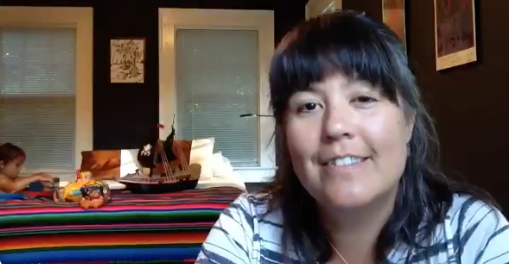As I write this, my four-year-old co-worker climbs up my desk chair and hangs off my neck. I take a breath, think of all the people trying to do their job and care for their kids during this pandemic, and wonder for the hundredth time how much different our lives would be if the U.S. had paid family and medical leave.
This week we commemorate the 27th anniversary of the implementation of the Family and Medical Leave Act (FMLA). It’s a day we celebrate, because the law established the principle that being there for your family shouldn’t cost you your job. But the anniversary is also a cautionary tale. The time guaranteed was unpaid, and the law excluded 40 percent of the workforce. Those who were instrumental in passing the FMLA saw it as a first step. No one thought it would take three decades to make the leave affordable and accessible for all.
For the past ten years I’ve been proud to be part of the Family Values @ Work network, where state coalitions are paving the way for federal standards on paid sick days and paid family and medical leave. Together we’ve created what one friend dubbed the movement, models and momentum it will take to win the policies we need.
What stands out most about this movement is the work our anchor partners across the country have done to build broad and diverse coalitions, because we all have a stake in valuing time to care; and how we center the leadership of those most affected by the absence of paid leave – particularly women of color and other low-wage workers. That’s driven our movement to make sure the paid leave policies we fight for and win are the most effective, asking: Who needs them? Can they afford to use them? If not, what do we do about it?
With each win, state leaders improved on the model, so that now the standard is a policy that is:
- universal, covering all workers;
- affordable, with those who earn the least getting all or most of their wage;
- secure, knowing you can take leave because you’ll have a job to come back to; and
- inclusive, so we can all care for our loved ones, however we define our families.
The pandemic reminds us this model isn’t a luxury or a gift. In fact, it’s essential to the physical and economic health of our nation.
We can’t say we want equity for women and leave out big chunks of those who provide or need care. We can’t say Black lives matter, racial justice matters, unless we ensure those most impacted by health and caregiving disparities can afford to care for themselves and those they love.
The good news is, the public overwhelmingly supports this perspective, across all demographics and political views. Paid leave is good policy — AND good politics.
FV@W is proud to have helped launch the Paid Leave for All campaign, where dozens of national organizations are working together with one voice. We will win, and what we win will be for all.
Wendy Chun-Hoon is the executive director of Family Values @ Work.
